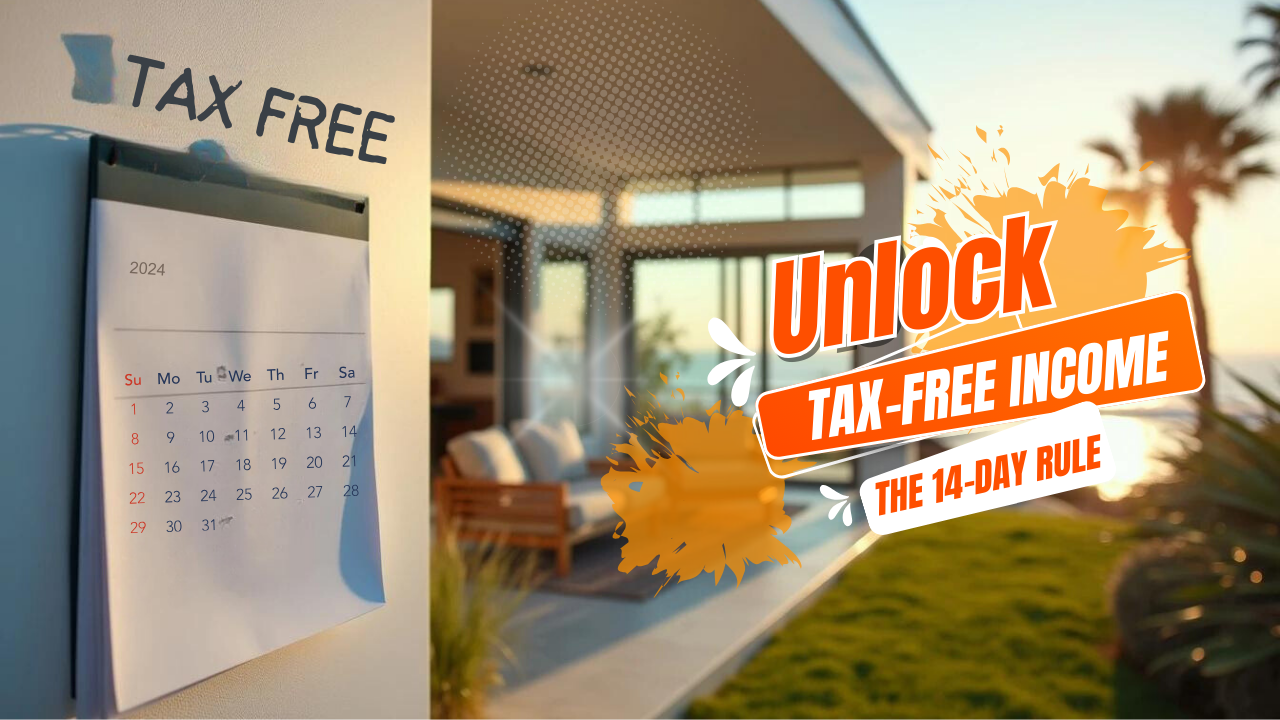Exercitation ullamco laboris nis aliquip sed conseqrure dolorn repreh deris ptate velit ecepteur duis.
Tax Benefits Specific to Short-Term Rentals: A Hidden Advantage
-
Vestio Capital > Education > Investing in Vacation Rentals > Tax Benefits Specific to Short-Term Rentals: A Hidden Advantage

Investing in short-term rental properties can be financially rewarding, not just from rental income and property appreciation, but also from the potential tax benefits. Many property owners are unaware of the significant tax advantages that can accompany short-term rentals (STRs), especially when they meet specific usage criteria. Understanding these benefits can substantially improve your bottom line and make your investment even more profitable. Here’s a closer look at some of the key tax benefits specific to short-term rentals.
1. Rental Property Deductions
One of the most substantial benefits of owning a short-term rental property is the ability to deduct various expenses related to maintaining and operating the property. Just like with long-term rental properties, the IRS allows you to deduct costs such as property management fees, mortgage interest, property taxes, utilities, insurance, maintenance, and repairs.
These deductions can add up quickly and help offset the income generated from your rental, reducing your taxable income. For instance, if you own a vacation home that you rent out for most of the year, you can deduct expenses related to keeping the property in good condition, including cleaning services between guest stays, landscaping, and even expenses related to marketing your property on platforms like Airbnb or Vrbo.
2. Depreciation
Another significant tax advantage is depreciation. The IRS allows property owners to depreciate their rental property over 27.5 years, even though the property may actually be appreciating in value. Depreciation is a non-cash deduction, meaning you don’t have to spend money to claim it, but it reduces your taxable income by recognizing the “wear and tear” on the property over time.
For example, if your short-term rental property is valued at $275,000 (excluding the value of the land), you could potentially deduct $10,000 per year in depreciation ($275,000 ÷ 27.5 years). This deduction can help offset your rental income and reduce your overall tax liability.
It’s important to note that when you sell the property, you may have to recapture the depreciation, meaning the IRS could tax you on the amount you previously deducted. However, this can often be deferred through strategies like a 1031 exchange, allowing you to reinvest in another property without paying taxes immediately.
3. The 14-Day Rule: Tax-Free Rental Income
One of the most unique tax benefits available to short-term rental owners is the 14-day rule. This IRS rule allows you to rent out your property for up to 14 days per year and keep the rental income completely tax-free, provided you also use the property for personal purposes.
This means that if you own a vacation home and rent it out for a week or two during a peak season—such as a major event in the area—you can pocket the rental income without having to report it as taxable income. This tax-free income can be a significant boost, especially for properties located in high-demand areas where weekly rental rates can be quite lucrative.
However, to qualify for this tax benefit, you must also personally use the property for at least 14 days per year or 10% of the total days it’s rented out, whichever is greater. If you exceed the 14-day rental limit, you’ll need to report the income, but you can still deduct expenses related to the rental.
4. Active Participation Tax Benefits
 If you actively participate in managing your short-term rental property, you may qualify for additional tax benefits. The IRS defines active participation as being involved in making key management decisions, such as approving new tenants, setting rental terms, and arranging for repairs.
If you actively participate in managing your short-term rental property, you may qualify for additional tax benefits. The IRS defines active participation as being involved in making key management decisions, such as approving new tenants, setting rental terms, and arranging for repairs.
Active participation allows you to deduct up to $25,000 in rental property losses against your non-rental income (e.g., wages, interest, dividends) if your modified adjusted gross income (MAGI) is $100,000 or less. This deduction phases out for MAGIs between $100,000 and $150,000.
This means that even if your short-term rental operates at a loss—perhaps due to a large repair bill or a slow rental season—you could use that loss to reduce your overall taxable income, which can lead to significant tax savings.
5. Pass-Through Deduction
Under the Tax Cuts and Jobs Act (TCJA), many owners of pass-through entities, such as sole proprietorships, LLCs, partnerships, and S corporations, are eligible for a 20% deduction on qualified business income (QBI). If your short-term rental qualifies as a business rather than just an investment, you may be able to take advantage of this pass-through deduction, further reducing your taxable income.
To qualify, your rental activity must rise to the level of a business, which typically means you’re involved in regular and continuous operations, rather than treating the property as a passive investment. This can be a gray area, so it’s essential to consult with a tax professional to ensure you qualify for the deduction.
Conclusion
The tax benefits specific to short-term rental properties can be a powerful tool for maximizing your investment returns. From rental property deductions and depreciation to the 14-day rule and active participation benefits, understanding and leveraging these tax advantages can significantly reduce your tax liability and boost your overall profitability in Vacation Rentals.
As with any investment, it’s crucial to stay informed about tax regulations and consult with a tax professional who is familiar with the nuances of short-term rental properties. By taking full advantage of the tax benefits available, you can make your short-term rental investment even more rewarding.

